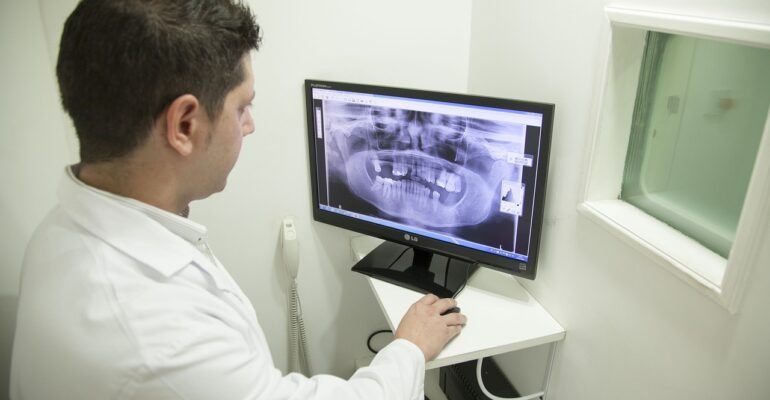The Role of ISO 27001 in Healthcare Data Security
January 24, 2023 2024-08-28 13:57The Role of ISO 27001 in Healthcare Data Security
In the current digital era, there is no industry that is safe from cyber breach threats. The healthcare sector is not an oddity in this regard. Data security is a critical concern for the healthcare industry. It is integral for safeguarding critical and confidential patient information. It is also vital for complying with industrial and universal protocols.
Previously, it was a straightforward process for information management and data processing in the healthcare industry. With growing time, it has become complex to protect and manage patient data. Earlier information management was limited to paper records and physical lockers. Things have changed, and information management and access have become efficient. The threats have also evolved over time. The increased risks of information breaches, malware, viruses, and other malicious cyber-attacks have made it indispensable for healthcare organizations to think of a backup plan.
ISO 27001 – At a glance
ISO/IEC 27001:2013 is a globally-accepted standard for ISMS. The regulatory framework defines and categorically specifies the essentialities for developing, implementing, maintaining, managing, and continually enhancing a data and information security management system in an organization.
ISO 27001 framework also states the need for assessing and recognizing the possible information security risks. It offers a generic framework but the tailor-made risk management aspects fit the needs of every industry. Even with healthcare organizations, the implementation of ISO 27001 for optimal ISMS has become indispensable.
The requirements in ISO/IEC 27001:2013 are apt and conveniently applicable to all organizations. The implementation is convenient regardless of the type, size, and industrial domain of the organization. ISO 27001 framework contains the critical aspects that help the organization develop a robust ISMS or information security management system. A well-defined system helps in safeguarding the data in the long run.
Data security in the healthcare industry
In the current times, nurses, doctors, insurance professionals, and other healthcare officials heavily rely on technology and cloud-based data. Data sharing is also critical for various professional reasons. From insurance matters to internal information management, data sharing is essential in every aspect. The flexibility of data exchange can create threats and security breaches. Also, the chances of technical failure augment with greater data flexibility. All these and more make it vital for the healthcare organization to generate a well-planned ISMS. In this context, ISO 27001 makes a significant impact in developing the ISMS that is efficient and assures optimal cyber security.
Factors that matter the most
Cybersecurity risk assessment is a daunting process, and especially in healthcare sectors, the resources are limited. Unlike IT organizations, resource management becomes a tough aspect to ensure the optimal safeguarding of data. The correct guidance for risk assessment and management of data threats is essential. And thus, resource management and distribution of responsibilities become crucial facets over time.
Healthcare organizations must implement a successful program for ISMS development by following the ISO guidelines. Here is a quick overview of the ideal risk management practices defined by ISO 27001 that could help healthcare organizations.
- A well-planned structure – The framework defines the protocols that help in strategy development for risk identification. The prime focus needs to be on data integrity, data confidentiality, and accessibility. The right approach defined by the ISO guidelines addresses the critical issues related to the potential security risks.
- Risk identification – Recognition and acknowledgment are the most time-consuming aspects of the risk assessment strategy. The framework helps recognize the aspects that could affect critical data related to patients, medical operations, or insurance. An asset-based assessment can help the process of risk identification. The ISO framework helps maintain a list of your data resources and segmentizing the data storage for enhancing security measures.
- Risk analysis and security strategy – ISO 27001 defines the risk analysis phase to help the organization develop a robust security management strategy. The healthcare organization must have a segmented overview and safeguarding techniques for the distinct data sets to allow optimal flexibility in access and security implementation. The process is complex as it involves the identification of vulnerabilities and threats for the respective assets. It also helps in the order of risk and security address. Even in case of a technical breach, the security strategy must be methodical for optimal data management in the healthcare sector.
The solution – Improved risk management models
An ISMS enables the healthcare organization to systematically operate and enhance the information management system. It is essential for system security and data management. By implementing the framework of ISO 27001, the healthcare organization can measure the extent of security management risks and possibilities of technical shortcomings in the existing information management system. It helps them assess and manage their information security processes. Furthermore, it enhances the control of data accessibility to prevent unwanted data access and security breaches. It gets easy to figure out the loopholes in the existing ISMS. All these ensure a coordinated approach and eases the need to develop an improved risk management model.
The role of ISO 27001 – More than management
In the last few years, healthcare organizations across the globe have become vulnerable to various cyber-attacks. As a result, everyone associated with the industry and third parties has become concerned about the data privacy of critical medical records. It has also become a threat to patients. Hackers misuse the confidential information of the patients (for example – payment details, credentials, etc.) to falsely bill for procedures.
The framework of ISO 27001 can assist healthcare organizations to acknowledge and mitigate the risks, and defending confidential data and medical records. It is also a proactive way to let the patients know the seriousness of the organization in implementing a robust ISMS strategy.
Other benefits of ISO 27001 certification implementation in the healthcare sector include –
- Data confidentiality at its best
- Integrity and data management
- Data availability and accessibility
- Proactive steps for better data management
Get certified for tightening data security.
Identify the risks and implement the correct steps for tightening the data security at the healthcare organization. Ensure an improved ISMS with optimal care towards cyber security management. Get certified and choose IRQS for conducting an audit in the organization before getting certified.






